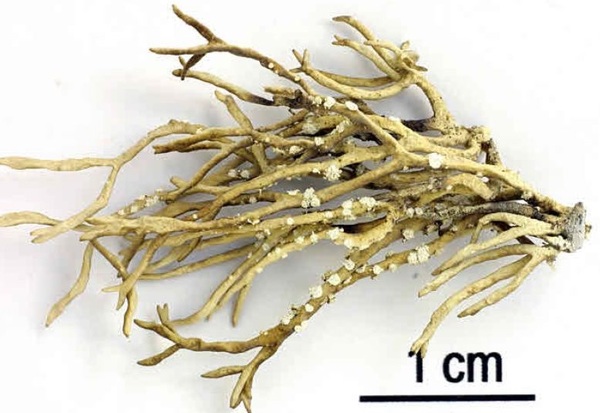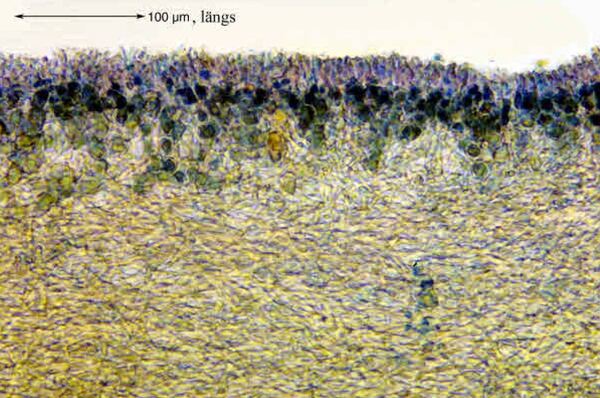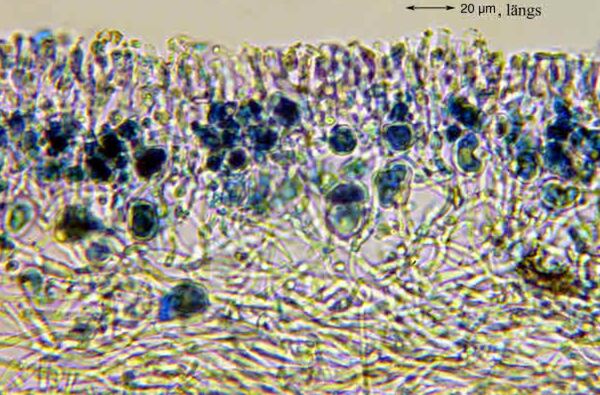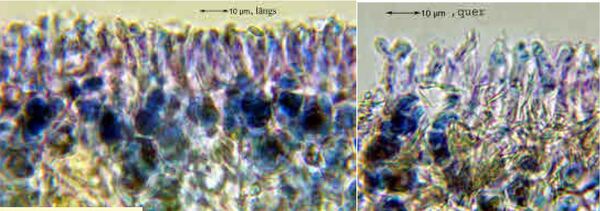Roccella elisabethae Tehler
in Tehler & al., Symb. Bot. Upsal., 34, 1: 413, 2004.
Synonyms:
Distribution:
Description: Thallus fruticose, shrubby, rarely pendent, pale grey to creamy white, sparsely and irregularly branched from a single holdfast, often forming extensive swards. Branches terete or slightly flattened, 2-8(-10) cm long, 0.5-1.2 mm wide, smooth or slightly foveate, sparsely and thinly pruinose, with conspicuous, white, globose-efflorescent, laminal or rarely terminal soralia. Cortex of slightly interlaced, anticlinally arranged hyphae which do not form a conspicuous palisade plectenchyma, not overlain with a translucent epicortical gel; medulla loose, white or sometimes partly brownish. Basal holdfast white, but streaked with black or dark brown. Apothecia unknown. Photobiont trentepohlioid. Spot tests: cortex K-, C+ red, P-; medulla K-, C-; soralia K-, C+ red, UV+ white. Chemistry: cortex ad soralia with lecanoric acid.Note: a species resembling R. phycopsis, but with C+ red soralia and a white medulla in the basal holdfast, described from the Canary Islands and also known from the Atlantic coasts of Southern Europe, on rocks subject to humid, salt-loaden winds. A recent find along the coasts of Turkey (Halici & Kahraman 2016) considerably enlarges its distributional range, so that it should be looked for in other parts of the Mediterranean Region, including Italy.
Growth form: Fruticose
Substrata: rocks
Photobiont: Trentepohlia
Reproductive strategy: mainly asexual, by soredia, or soredia-like structures (e.g. blastidia)
Restricted to humid-warm, oceanic areas
Taxon bound to maritime-coastal situations

Predictive model


Felix Schumm - CC BY-SA 4.0
Spanien, Gran Canaria, Barranco de Los Tilos südlich Moya; N 28°04.766, W 15°35.935, Höhe 620 m. Leg et det. Schumm 16.12.1999. [5254]


Felix Schumm - CC BY-SA 4.0
Spanien, Gran Canaria, Barranco de Los Tilos südlich Moya; N 28°04.766, W 15°35.935, Höhe 620 m. Leg et det. Schumm 16.12.1999. [5254]


Felix Schumm - CC BY-SA 4.0
Spanien, Gran Canaria, Barranco de Los Tilos südlich Moya; N 28°04.766, W 15°35.935, Höhe 620 m. Leg et det. Schumm 16.12.1999. [5254]
Growth form: Fruticose
Substrata: rocks
Photobiont: Trentepohlia
Reproductive strategy: mainly asexual, by soredia, or soredia-like structures (e.g. blastidia)
Restricted to humid-warm, oceanic areas
Taxon bound to maritime-coastal situations

Predictive model


Felix Schumm - CC BY-SA 4.0
Spanien, Gran Canaria, Barranco de Los Tilos südlich Moya; N 28°04.766, W 15°35.935, Höhe 620 m. Leg et det. Schumm 16.12.1999. [5254]


Felix Schumm - CC BY-SA 4.0
Spanien, Gran Canaria, Barranco de Los Tilos südlich Moya; N 28°04.766, W 15°35.935, Höhe 620 m. Leg et det. Schumm 16.12.1999. [5254]






